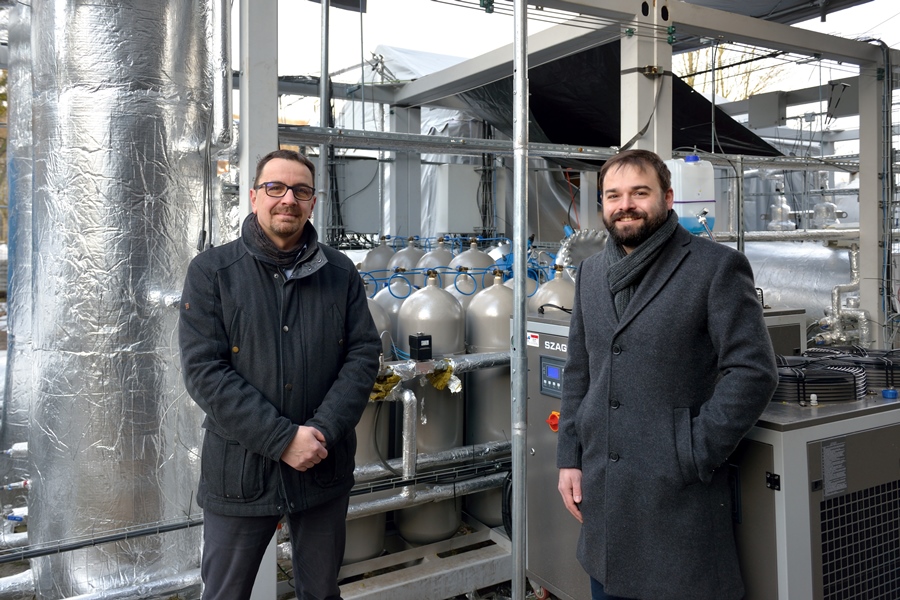Scientists from the Gdańsk University of Technology have developed a new method for obtaining dimethyl ether from small hydrocarbon deposits. The gas can be an alternative to LPG imported from Russia.
Researchers from the Gdańsk University of Technology have completed work on the production of dimethyl ether (DME) from hydrocarbon deposits. It is a colorless gas, but has a characteristic odor. It is used by, among others, the cosmetic and pharmaceutical industries. DME is also applicable in the fuel sector. Its physical properties are similar to propane-butane, thus it can be a substitute for diesel, LPG and LNG. Dimethyl ether can be made from natural gas, coal or biomass. It is regarded as a green fuel that can support the energy transition. During combustion, it does not emit the solid particles that make up smog.
The research was done as part of the project: „New Technology for the Production of Dimethyl Ether From Small Hydrocarbon Deposits”, commissioned by PGNiG. The very assumptions of the project were tested in a dedicated demonstrator. The project used dimethyl ether produced from the reaction of natural gas with carbon dioxide. Then the gas was cleaned and compressed.
„Both the catalyst that we have modified and the reactor of our demonstrator have been filed for patent protection,” emphasizes the project manager engineer Andrzej Rogala, PhD. „The method developed by us provides greater economic and energy efficiency in the process of creating ether. Thanks to the research in the demonstrator, we have proved the final concept of the technology, which is already suitable for direct implementation,” he said.
As the authors of the project emphasize, dimethyl ether can be used in cars with a diesel engine, the latter only need to be adapted.
„This is not an expensive and time-consuming process, it can be compared to introducing modifications in a gasoline engine using LPG gas. Of course, it is not a perfect fuel, because although it does not emit solid particles into the atmosphere, it does emit carbon dioxide, and it also has a lower calorie content than traditional fuels. However, when thinking about the necessary changes in the energy industry that we need to introduce, it is necessary to diversify energy sources, taking into account the different options that will coexist: hydrogen, biofuels, ether, etc. Our project answers these needs and challenge,” the University’s website said.
The European Union adopted the twelfth package of sanctions, which includes a ban on imports of LPG gas from Russia. Currently, there is a 12-month transition period, but individual companies are looking for alternatives both for import and for use instead of liquefied propane. According to data from the first three quarters of 2023, during this period Poland was responsible for 69 percent of the LPG that the EU purchased from Russia.
Gdańsk University of Technology / Marcin Karwowski









